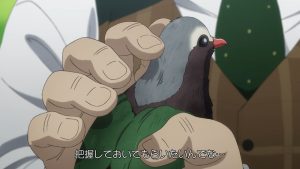 There are similarities, to be sure, between two of this season’s darker shows, Pet and Dorohedoro. They’re not exactly peas in a pod but not apples and oranges either – more like apples and pears. Both feature what I would categorize as an absence of a real protagonist – or at the very least a sympathetic one. These series are mostly bad people doing bad things to each other – the similarity pretty much ends there, but that’s a mighty important similarity to be sure.
There are similarities, to be sure, between two of this season’s darker shows, Pet and Dorohedoro. They’re not exactly peas in a pod but not apples and oranges either – more like apples and pears. Both feature what I would categorize as an absence of a real protagonist – or at the very least a sympathetic one. These series are mostly bad people doing bad things to each other – the similarity pretty much ends there, but that’s a mighty important similarity to be sure.
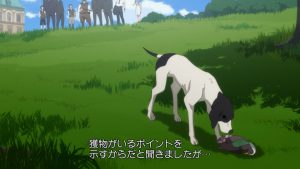 So why is it, then, that I’ve kept one and dropped the other – first from coverage and now, after the most recent episode, probably altogether? These things are hard to quantify, but tone has something to do with it. I certainly understand that the dichotomy between the events on-screen and the characters’ attitude towards them in Dorohedoro is intentional, but that doesn’t mean it has to work for me. I just find the whole experience of that series increasingly unpleasant, as the grossness gets grosser and the comedy less and less funny (and it was never all that funny to start with).
So why is it, then, that I’ve kept one and dropped the other – first from coverage and now, after the most recent episode, probably altogether? These things are hard to quantify, but tone has something to do with it. I certainly understand that the dichotomy between the events on-screen and the characters’ attitude towards them in Dorohedoro is intentional, but that doesn’t mean it has to work for me. I just find the whole experience of that series increasingly unpleasant, as the grossness gets grosser and the comedy less and less funny (and it was never all that funny to start with).
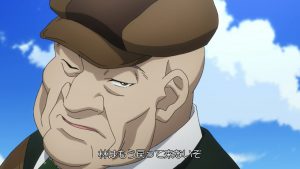 At least in Pet there’s some sense of consequence for deeds done, but it has it occasions where it too makes me strain to find a reason to care. And this episode was one of those. I have a disturbing sense that Miyake Ranjou wants me to find Tsukasa sympathetic and I really, really don’t. I don’t find his relationship with Hiroki cute or touching in any way, just sick. I certainly wasn’t jumping out my chair in celebration when Hiroki pulled him from the brink of being crushed – I’d prefer it if he’d stayed crushed, which he deserved. The fact that it would have wrecked Hiroki too is unfortunate on an intellectual level, but I just don’t care enough about him to really be bothered by that.
At least in Pet there’s some sense of consequence for deeds done, but it has it occasions where it too makes me strain to find a reason to care. And this episode was one of those. I have a disturbing sense that Miyake Ranjou wants me to find Tsukasa sympathetic and I really, really don’t. I don’t find his relationship with Hiroki cute or touching in any way, just sick. I certainly wasn’t jumping out my chair in celebration when Hiroki pulled him from the brink of being crushed – I’d prefer it if he’d stayed crushed, which he deserved. The fact that it would have wrecked Hiroki too is unfortunate on an intellectual level, but I just don’t care enough about him to really be bothered by that.
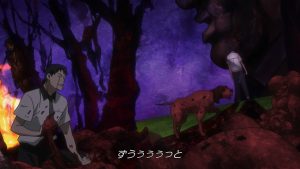 Maybe lack of rooting interest shouldn’t be a problem, but in practical terms it is, at least for me. I want to feel some reason to care about anything or anyone here and that part comes and goes. Hayashi is at least a complicated and properly fleshed-out character – no saint, certainly, but someone whose actions are relatable and believable. With him (presumably) out of the picture the pickings are pretty slim. About all I can muster any enthusiasm for is seeing Hiroki break himself free of Tsukasa’s control and Tsukasa getting what’s coming to him, but the former seems very unlikely.
Maybe lack of rooting interest shouldn’t be a problem, but in practical terms it is, at least for me. I want to feel some reason to care about anything or anyone here and that part comes and goes. Hayashi is at least a complicated and properly fleshed-out character – no saint, certainly, but someone whose actions are relatable and believable. With him (presumably) out of the picture the pickings are pretty slim. About all I can muster any enthusiasm for is seeing Hiroki break himself free of Tsukasa’s control and Tsukasa getting what’s coming to him, but the former seems very unlikely.
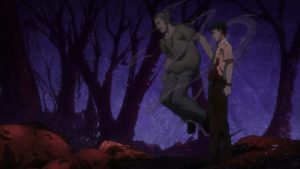 The Satoru subplot is interesting on an intellectual level, though he too has major problems as a character. It’s going to be interesting to see what happens if he finds out what happened to Hayashi, and who caused it. It’s apparent that there are very few people who have the ability to create puppets for the company, so Satoru has intrinsic value to them, and Jin’s mission was clearly to assess him from a risk vs. reward standpoint. I don’t think the answers she brought are definitive, and with Tsukasa not being crushed after all Satoru is that much less indispensable than he would have been otherwise.
The Satoru subplot is interesting on an intellectual level, though he too has major problems as a character. It’s going to be interesting to see what happens if he finds out what happened to Hayashi, and who caused it. It’s apparent that there are very few people who have the ability to create puppets for the company, so Satoru has intrinsic value to them, and Jin’s mission was clearly to assess him from a risk vs. reward standpoint. I don’t think the answers she brought are definitive, and with Tsukasa not being crushed after all Satoru is that much less indispensable than he would have been otherwise.


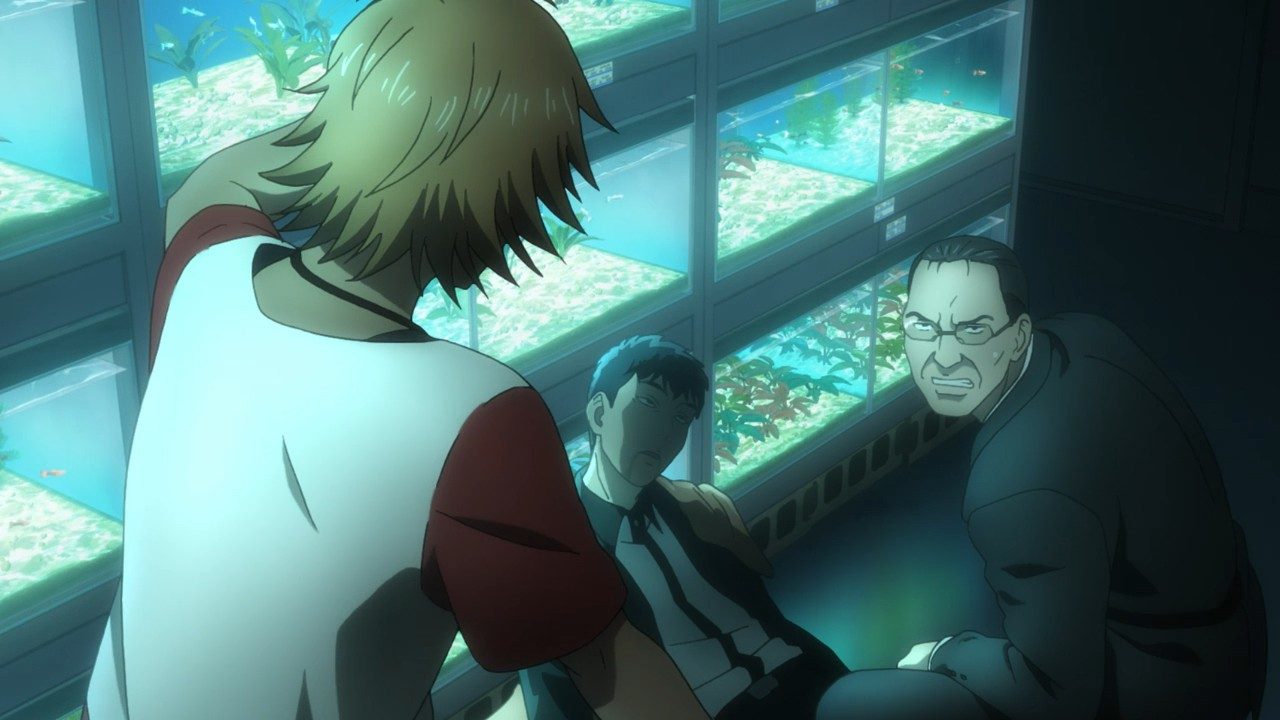
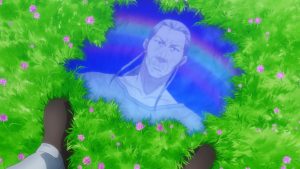
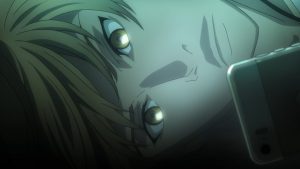
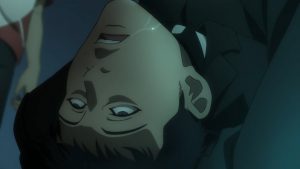
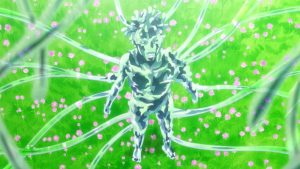
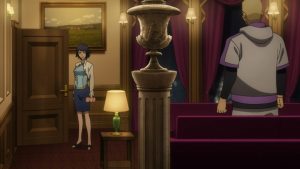
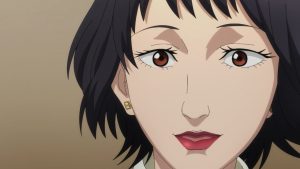
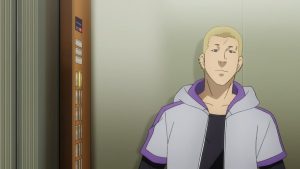
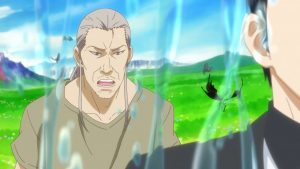
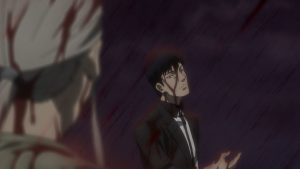
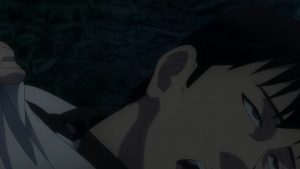
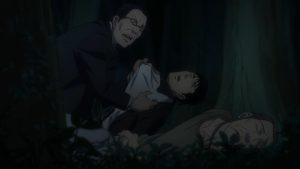
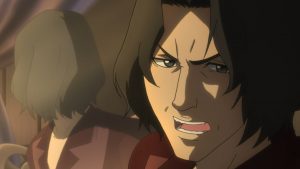
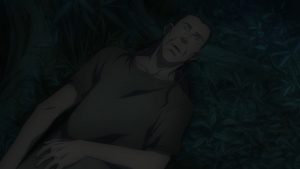
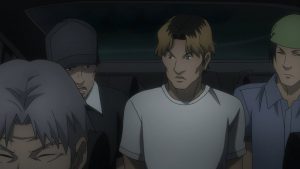
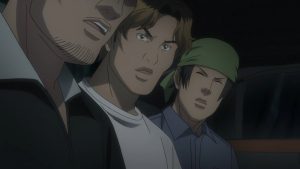
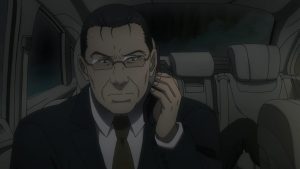

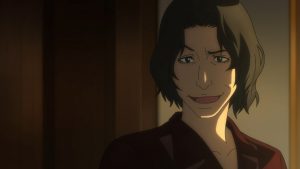
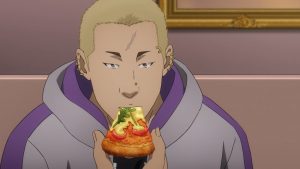
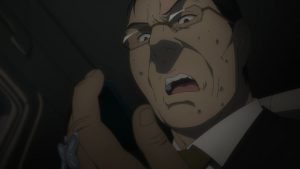
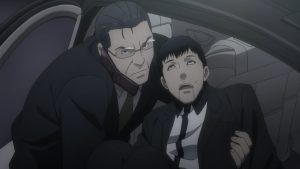
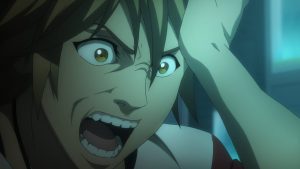
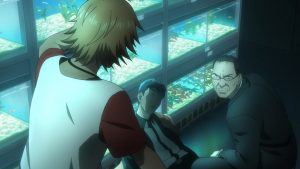
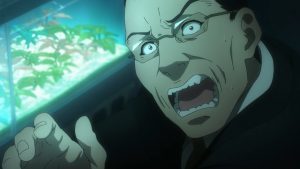
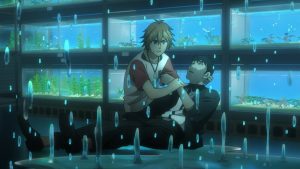
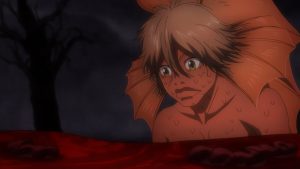
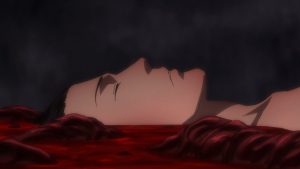
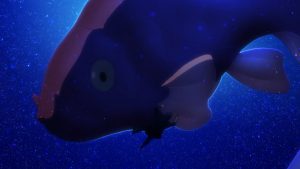

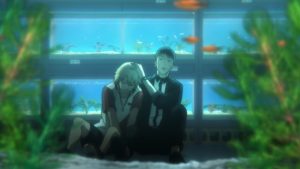
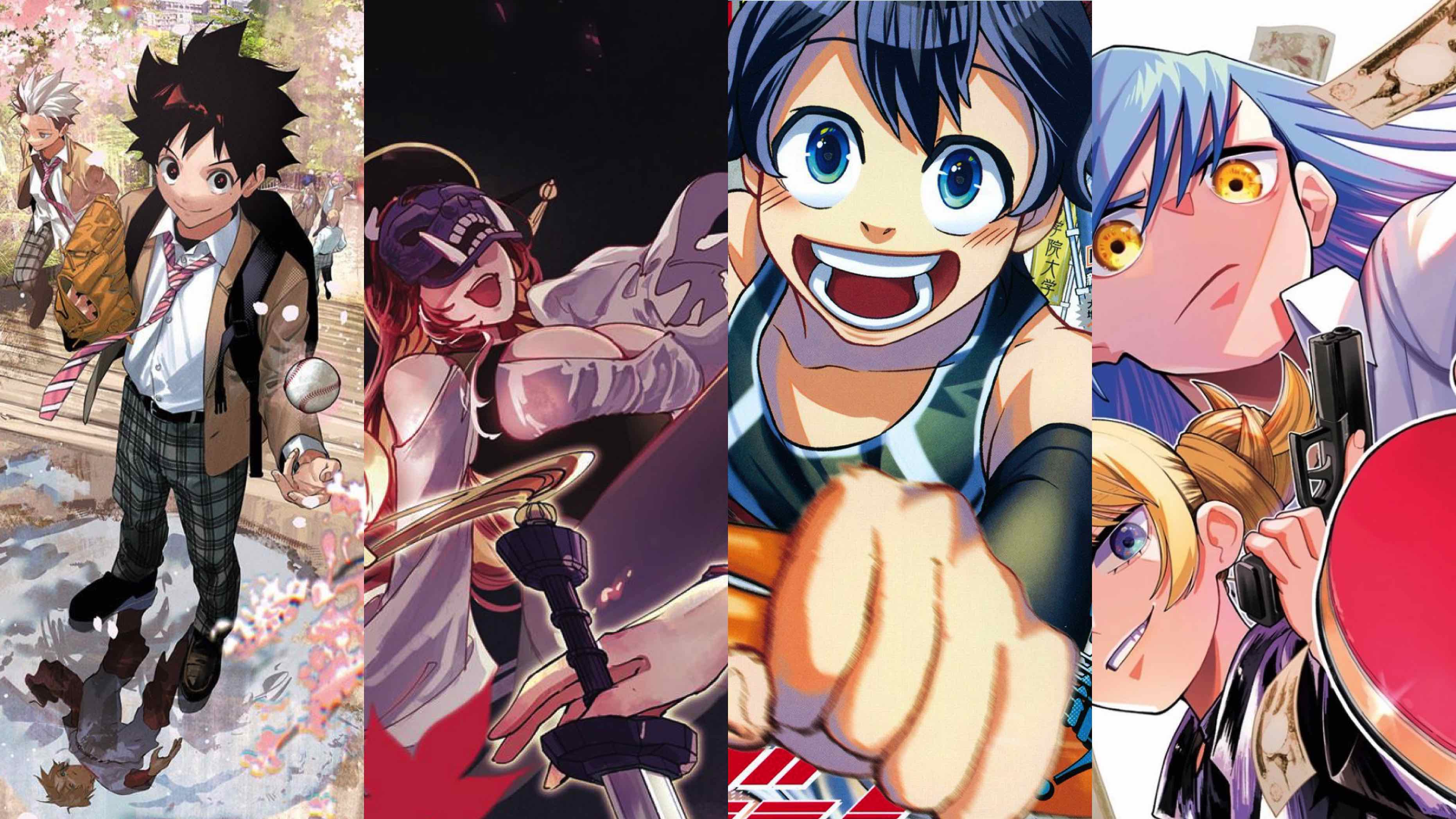
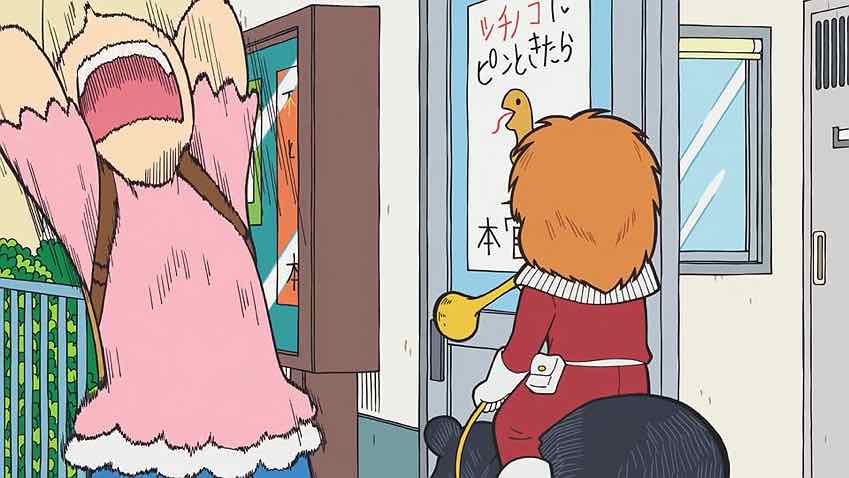
animealex
February 12, 2020 at 4:35 am1.) I’m also a bit lost and thought about dropping the series, after it was revealed that there are no truly good protagonists around. (except perhaps Hiroki and he’s kinda bland besides his whole Tsukasa fixation )
2.) I confess Tsuaksa scored some points with me after this episode because a) he didn’t plan in advance to being “uncrushed” by Hiroki (his surprise that Hiroki was helping him seemed genuine), b) he was ready to “die” with his beloved mind-progenitor (so he’s more of a yandere than a cold, calculating mastermind, which is a slight improvement imo), c) he was at least mindful enough not to leave Hiroki waiting for him forever (the hunting dog allegory from the bastard of a boss at the beginning which also seems to be one of Tsuaksa’s valleys) and d) wasn’t acting in his interaction with Hayashi in the last episode. If Tsukasa is still somewhat salvageable as a “goodish” person like Hayashi remains to be seen. If he starts treating Hiroki better after this episode, there might be some hope. The irony would of course be, if Tsukasa turns face only to be destroyed for it.
3.) I know the show tells us again and again that “Image-users” are not very emotionally (or mentally) stable, but it would really be nice, if the four of them could somehow talk about their problems and work it out together (If Hayashi still can be saved, that is). Seems unlikely though.
4.) All “Image-users” have to much empathy to function as human beings before someone shows them how to structure their mind. Afterwards they all seem to lack empathy and become to self-obsessed. So I wonder what crime finally brought Hayashi in conflict with the company and made him change his ways. Or was it his (parental-) love regarding Satoru?
5.) I’ll continue to watch this show, but I fear there will be no happy end.
Guardian Enzo
February 12, 2020 at 7:32 amI don’t need a happy ending. I would, however, like some reason to feel invested one way or the other.
As for Tsukasa, his actions here weren’t particularly reforming to me. Committing murder-suicide and asking your body be delivered to your slave afterwards is hardy redemptive behavior.
Goh
February 12, 2020 at 1:15 pmWhy this childhish insistence on good protagonists and sympathetic characters? Is that really necessary for your enjoyment of a story? Why does Enzo feel the need to mention that he feels enthusiasm for ”Tsukasa getting what’s coming to him”, or implying a contradiction between Satoru’s interesting storyline and his moral shortcomings?
Pet is much better than Dorohedoro on this, for reasons Enzo doesn’t specify. Doro thinks its characters are cool, quirky and fun. And that unequivocal embrace of them combined with the meaningless violence (that is supposed to be fun, but is not) makes for a distasteful, alienating experience. Frankly, it’s a very stupid show that thinks it’s cooler than it really is.
Pet just stares at the abyss, doesn’t judge its characters exactly (it mostly pities them), but holds its distance, which is much more honorable and interesting.